Why should taxpayers be paying for more vaccines?: Dr. Houman Hemmati
Dr. Houman Hemmati discuss how they Biden admin is encouraging the use of the next COVID booster on ‘Fox News @ Night.’
While speaking at a Thursday news conference for Gov. Ron DeSantis in Jacksonville, Florida, Dr. Joseph Ladapo, that state's surgeon general, advised people to steer clear of the updated booster vaccine for COVID-19.
The U.S. Food and Drug Administration (FDA) has not yet approved the new vaccine — which is reportedly designed to protect against the BA.2.86 omicron subvariant.
"There’s a new vaccine that’s coming around the corner, a new mRNA COVID-19 vaccine, and there’s essentially no evidence for it," Ladapo said during the news conference, according to local news outlets.
"There’s been no clinical trial done in human beings showing that it benefits people" he said.
"There’s been no clinical trial showing that it is a safe product for people — and not only that, but then there are a lot of red flags."
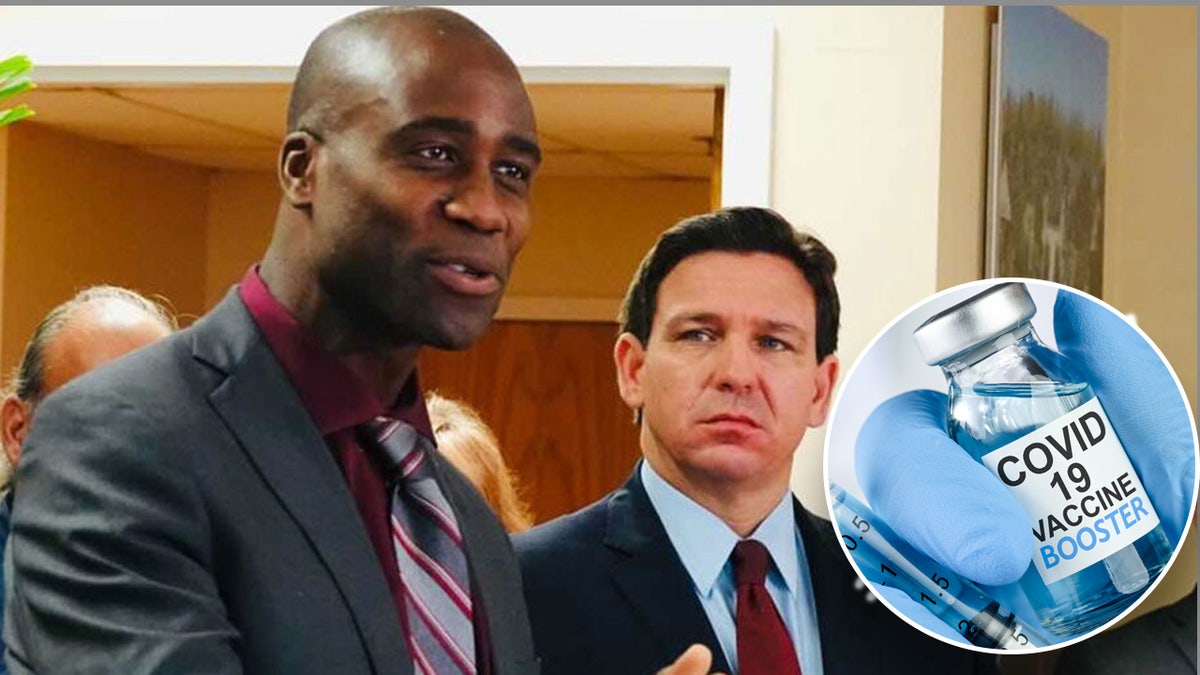
While speaking at a Thursday news conference for Gov. Ron DeSantis in Jacksonville, Florida, Dr. Joseph Ladapo, surgeon general of Florida, advised people to steer clear of the updated booster vaccine for COVID-19. (Getty Images/iStock)
In terms of specific concerns, Ladapo warned that the updated vaccines "actually cause cardiac injury in many people."
The state surgeon general urged Floridians to make their own decisions based on their particular "resonance of truth," rather than on "very educated people telling you what you should think."
CITING RISING COVID CASES, THESE US HOSPITAL SYSTEMS HAVE NOW REINSTATED MASK MANDATES
"When they try to convince you to be comfortable and agree with things that don’t feel comfortable, [that] don’t feel like things you should agree with, that is a sign, right? That’s a gift," he said.
Instead of relying on the new vaccines, Ladapo urged people to adopt healthy nutrition habits.
DeSantis appointed Ladapo, a doctor who trained at Harvard and was previously a UCLA medical researcher, as surgeon general in 2021.
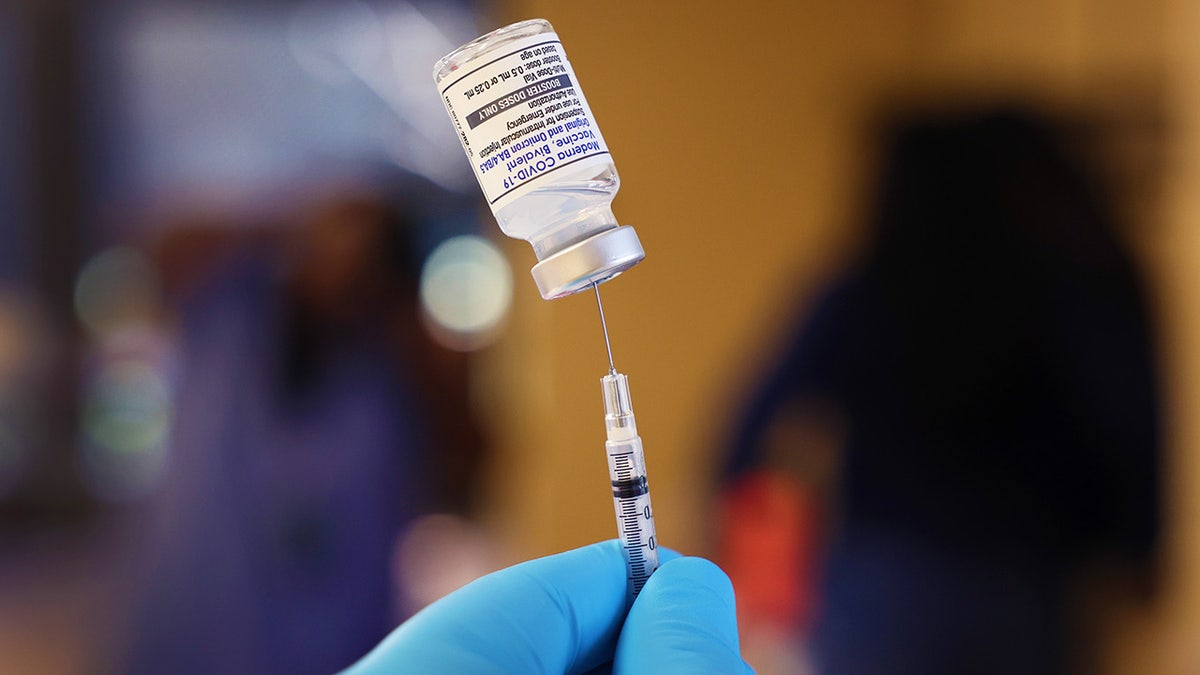
The U.S. Food and Drug Administration (FDA) has not yet approved the new vaccine, which is reportedly designed to protect against the BA.2.86 omnicron subvariant. (Scott Olson/Getty Images)
COVID vaccines safe in ‘vast majority’ of cases, says New York doctor
Dr. Marc Siegel, a professor of medicine at NYU Langone Medical Center and a Fox News medical contributor, pointed out that "COVID vaccines, in the vast majority of cases, are safe."
He told Fox News Digital, "Physicians with knowledge of vaccines should be involved in deciding the risk/benefit for their patients and offering advice, but it is ultimately up to the individual."
"For younger, healthier patients with intact immune systems and a foundation of immune memory against SARS-CoV-2 from prior vaccines and infection, I may choose to not recommend an additional booster at this time, but vilifying it is a dangerous move that undermines patient choice and the vaccine as one of my most important tools," he went on.
High-risk groups — including the elderly, along with those who have obesity, diabetes, chronic heart disease, lung disease and cancer — should be prioritized in receiving vaccines, the doctor said.
DOCTORS URGE VACCINATIONS AHEAD OF THIS YEAR'S FLU SEASON, WHICH COULD BE 'FAIRLY BAD,' EXPERTS SAY
"The new version that targets the XBB 1.5 subvariant, which is still about 20% of cases, has also been shown to be effective against the emerging EG.5 and BA.2.86 subvariants," Siegel said.
Although this is not an entirely new vaccine, it is a slight variation of the previous version, the doctor noted.
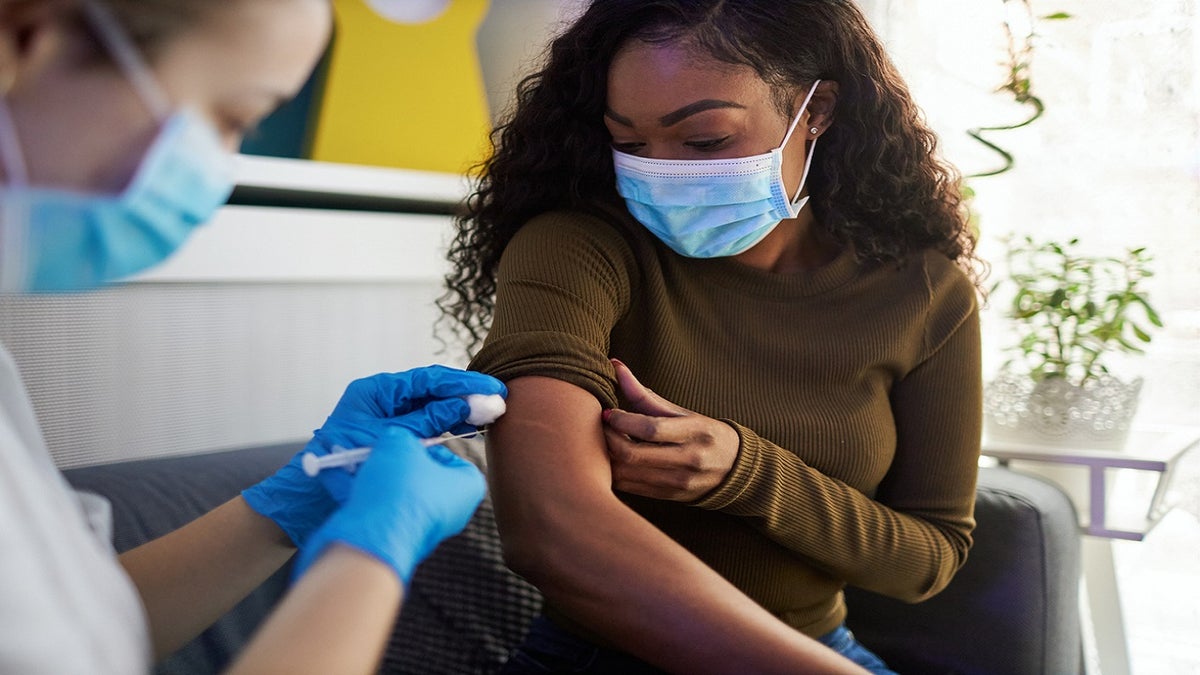
"The new version that targets the XBB 1.5 subvariant, which is still about 20% of cases, has also been shown to be effective against the emerging EG.5 and BA.2.86 subvariants," Siegel said. (iStock)
"There is no reason for full clinical trials prior to use," he said. "We will quickly amass new data. It is no longer an experimental vaccine."
There is a much higher risk of myocarditis from COVID than from the vaccine, according to the doctor, who added that the vaccine also decreases the risk of developing long COVID.
"Additional fearmongering about an effective and safe vaccine is not helpful. It is an individual choice."
"Additional fearmongering about an effective and safe vaccine is not helpful," he added.
"It is an individual choice," said Dr. Siegel.
"COVID is still a nasty virus that can affect multiple organ systems, including the brain," Siegel said. "The vaccine is a useful tool that should not be maligned, attacked or mischaracterized."
COVID-19, FLU AND RSV VACCINES ARE ALL AVAILABLE THIS FALL: SEE WHAT SOME DOCTORS RECOMMEND AND WHY
The doctor added that he will be recommending the booster for many people — but not for all.
"I won't offer it to those who just had COVID recently," he said.
‘Booster not necessary,’ says Florida doctor
Dr. Brett Osborn, a board-certified neurosurgeon and longevity expert in West Palm Beach, Florida, said he agrees with Dr. Ladapo’s recommendation "as it applies to the masses."
Osborn told Fox News Digital, "As time goes by, RNA viruses tend to lessen in pathogenicity, meaning that they cause lesser symptoms as the virus mutates further away from its original strain (of SARS-COV-2) that was responsible for the pandemic of 2020."
As time goes on, the severity and mortality rate of COVID will continue to decline and soon will be comparable to influenza, the doctor predicted — "therefore, the booster is simply not necessary."
In his Florida clinic, Osborn said he does not recommend the influenza vaccine to patients, as "the infection itself nearly always assumes a benign course in low-risk individuals, and similarly, I do not believe that our immune systems should be deprived of challenges."
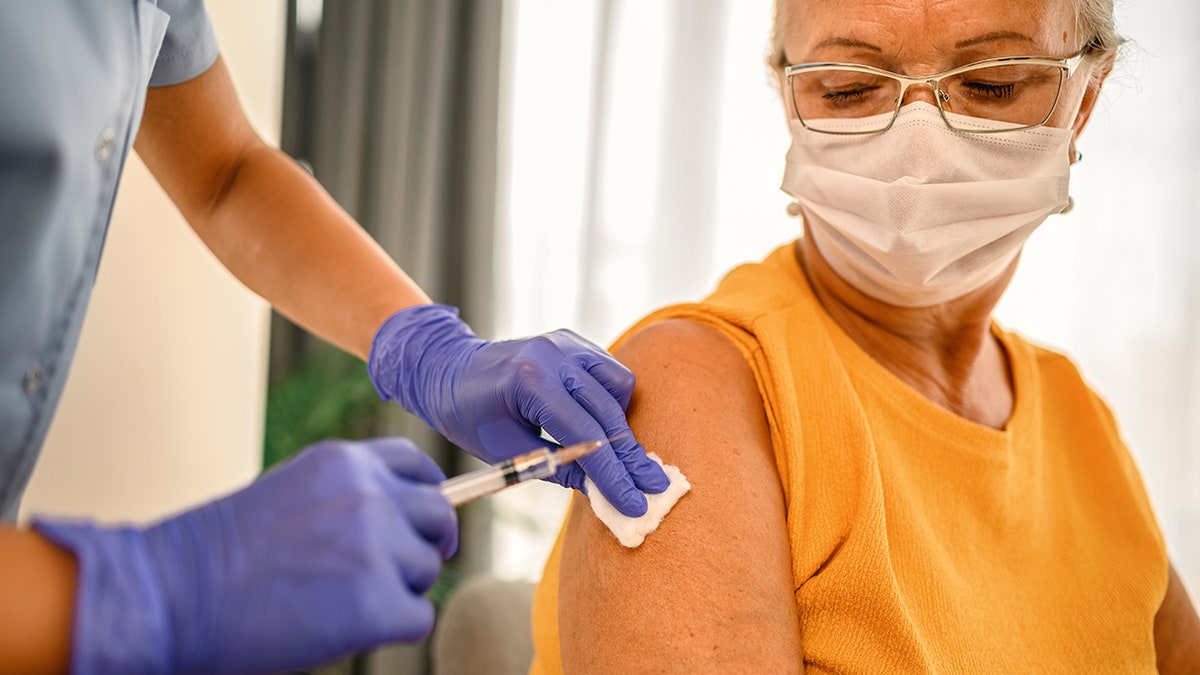
The "high-risk" population of Americans — namely the elderly, the morbidly obese and/or those with type II diabetes — may want to consider getting boosted, Dr. Osborn of Florida said. (iStock)
Osborn said he himself very seldom gets sick — perhaps every five years, he estimated — "because I take care of my body, not because I am routinely vaccinated (which I am not)."
That said, Osborn added that the "high-risk" population — namely the elderly, the morbidly obese and/or those with type II diabetes — may want to consider getting boosted.
CLICK HERE TO SIGN UP FOR OUR HEALTH NEWSLETTER
"For that population, the risks of a COVID-19 infection, or even one of its less aggressive variants, may be greater than the risk of a booster, even if it has undergone limited testing," he said.
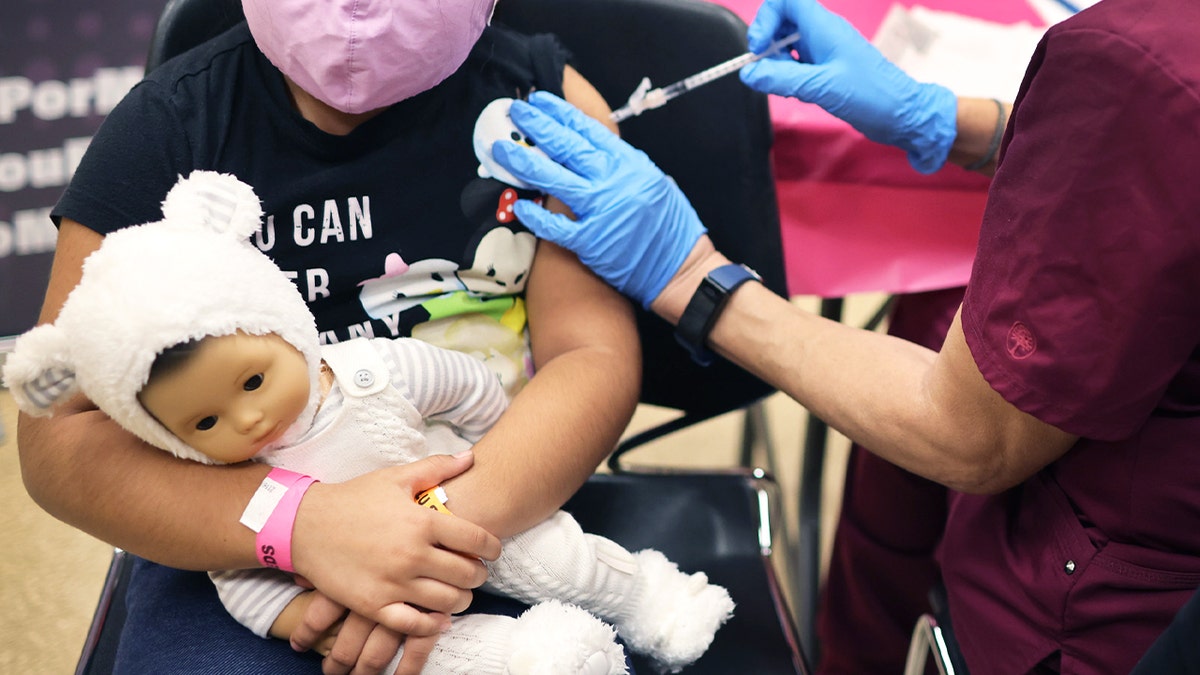
The CDC, for its part, recommends that everyone six months of age and older in the United States receive a COVID-19 vaccination. (Scott Olson/Getty Images)
Osborn also pointed out that vaccines for influenza and other viruses undergo testing for 10-15 years before they are publicly deployed.
"Getting boosted is a personal decision — one that must be made in conjunction with your physician, who can best determine your risk-benefit ratio," he said.
CLICK HERE TO GET THE FOX NEWS APP
The Centers for Disease Control and Prevention (CDC) recommends that everyone six months and older in the United States receive a COVID-19 vaccination.
"Getting boosted is a personal decision — one that must be made in conjunction with your physician, who can best determine your risk-benefit ratio."
The CDC website also states that "most people ages six years and older who are not moderately or severely immunocompromised and have received 1 dose of a bivalent mRNA vaccine do not need any further vaccine doses at this time."
It added, "People ages 65 years and older who received 1 dose of a bivalent vaccine have the option to receive 1 additional dose at least 4 months after the first bivalent dose."


